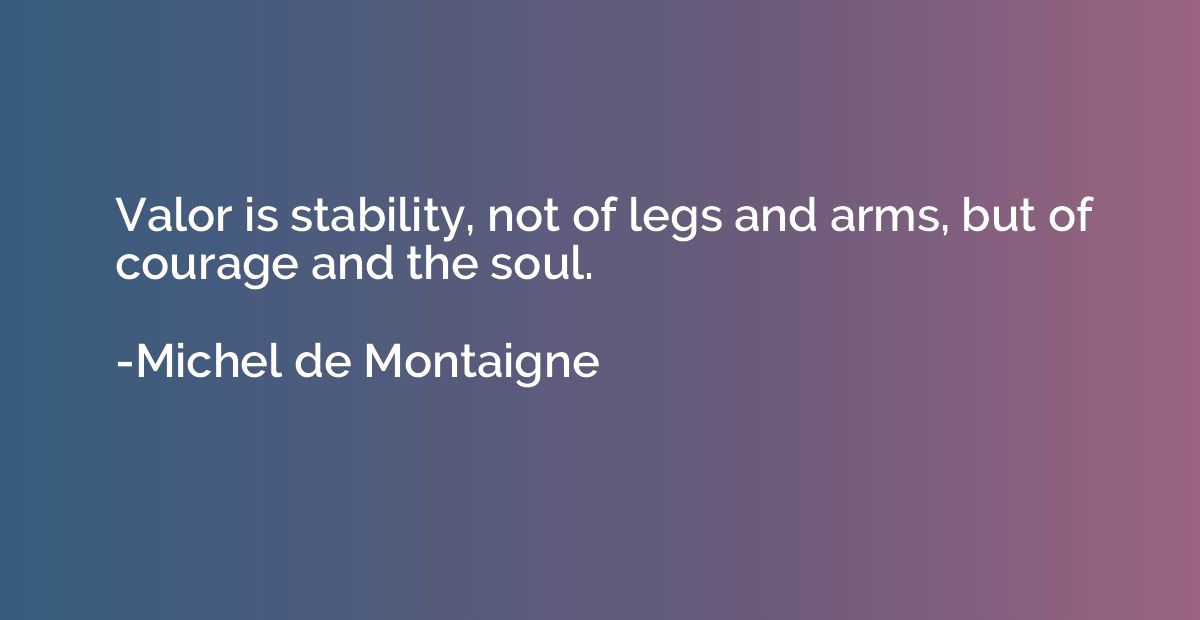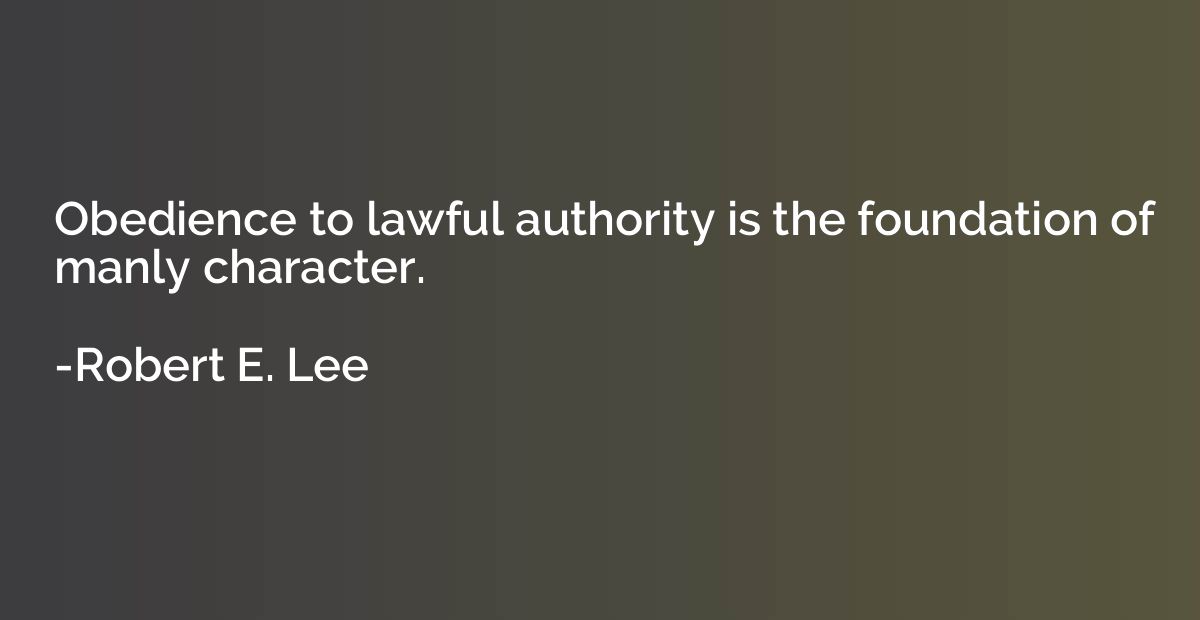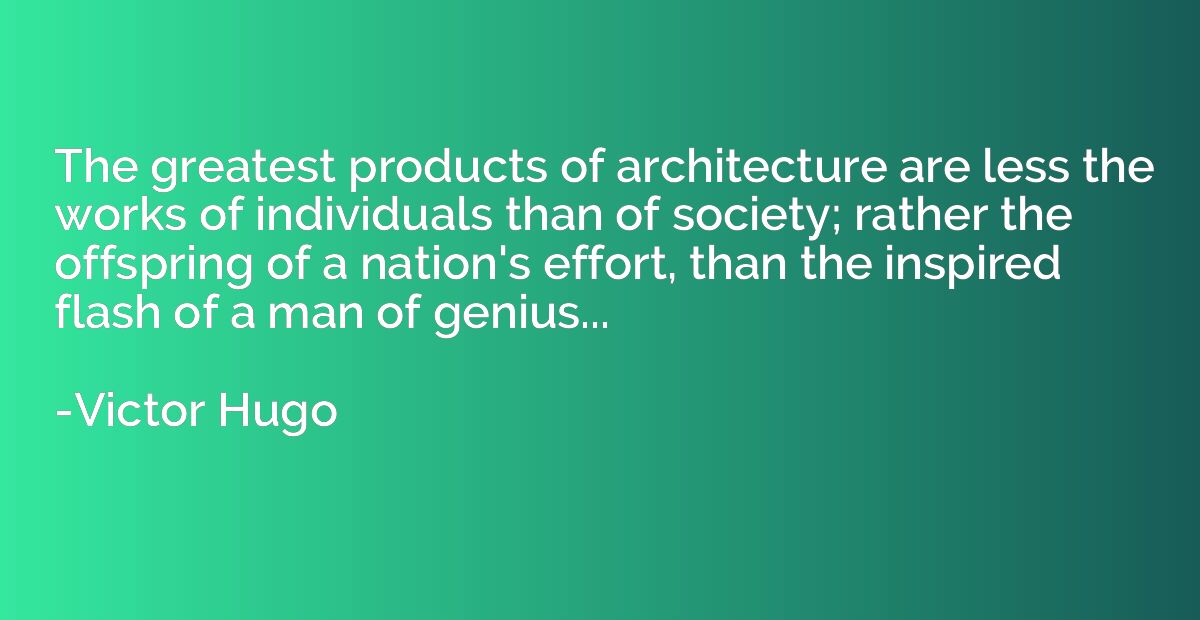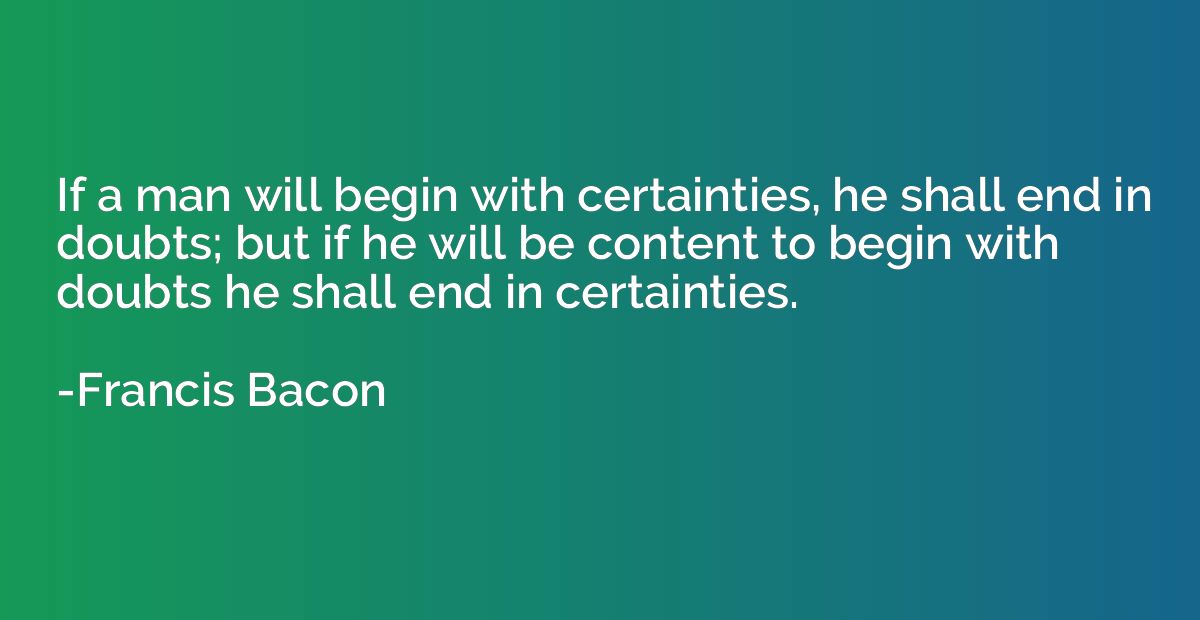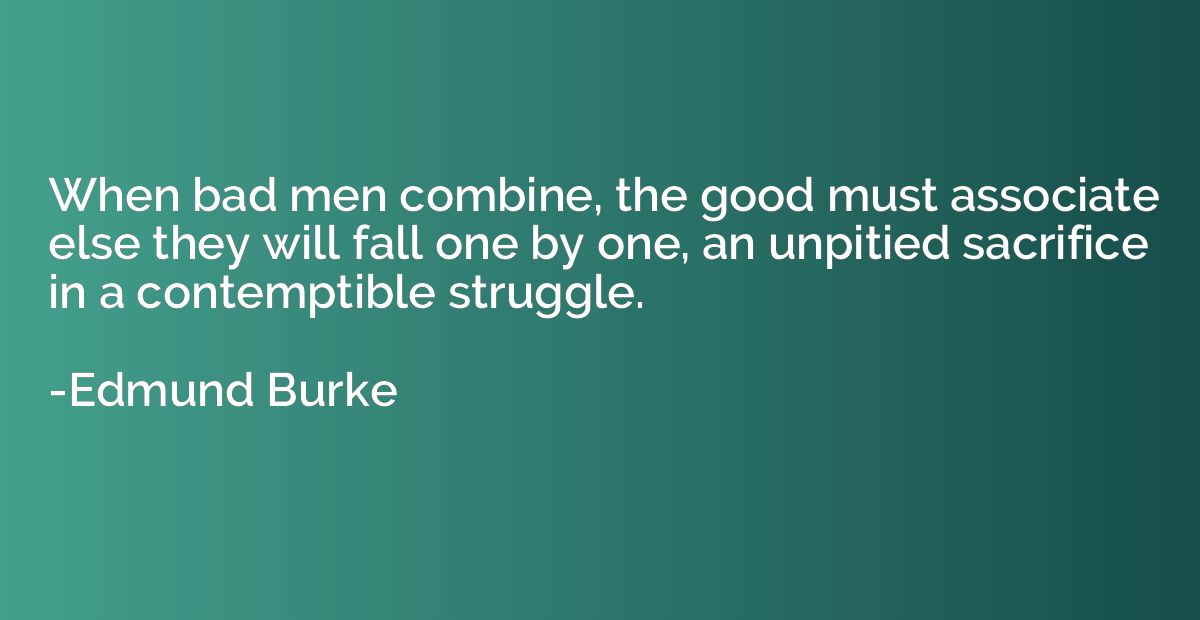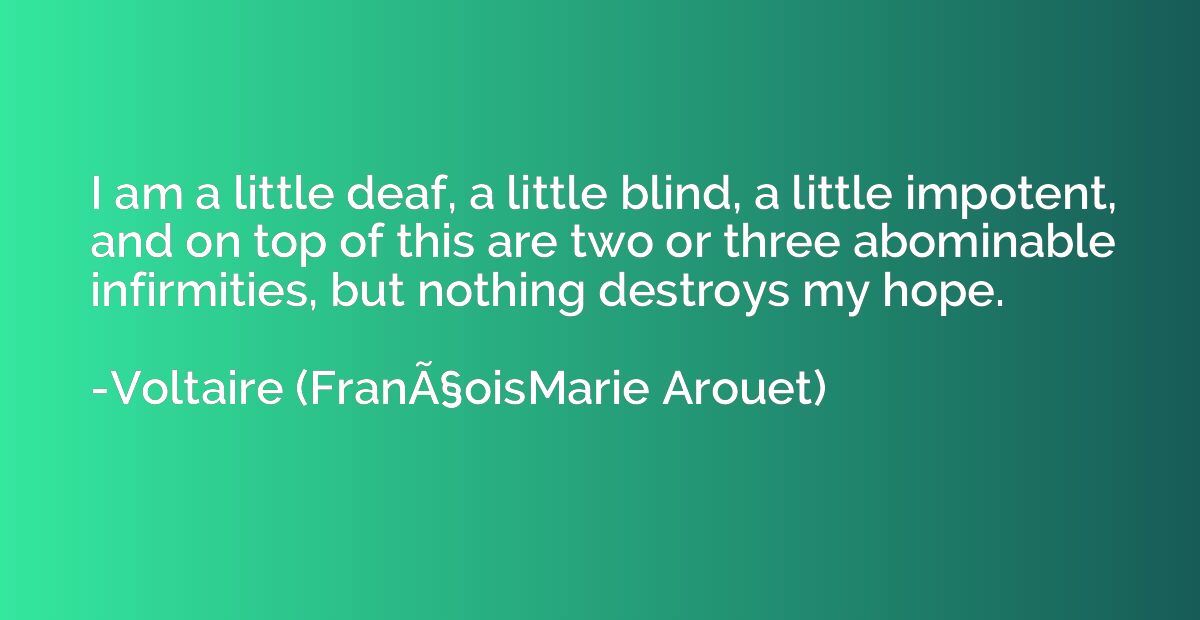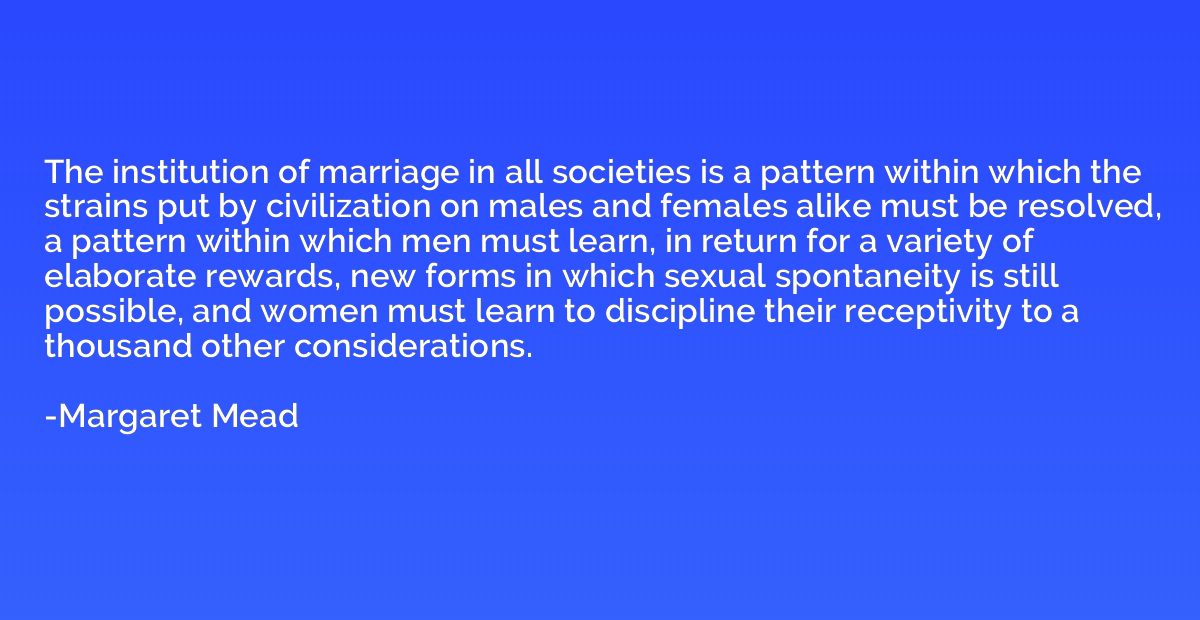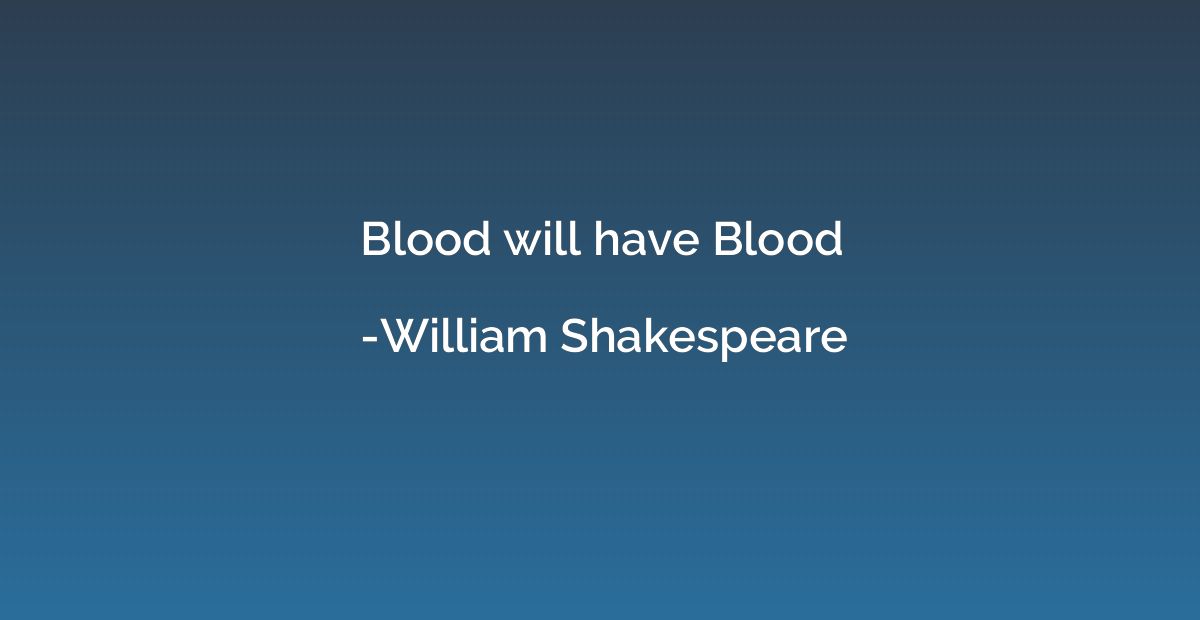Quote by Ralph Waldo Emerson
The poet is the sayer, the namer, and represents beauty. He is a sovereign, and stands on the centre. For the world is not painted, or adorned, but is from the beginning beautiful; and God has not made some beautiful things, but Beauty is the creator of the universe. Therefore the poet is not any permissive potentate, but is emperor in his own right. Criticism is infested with a cant of materialism, which assumes that manual skill and activity is the first merit of all men, and disparages such as say and do not, overlooking the fact, that some men, namely, poets, are natural sayers, sent into the world to the end of expression, and confounds them with those whose province is action, but who quit it to imitate the sayers. The poet does not wait for the hero or the sage, but, as they act and think primarily, so he writes primarily what will and must be spoken, reckoning the others, though primaries also, yet, in respect to him, secondaries and servants; as sitters or models in the studio of a painter, or as assistants who bring building materials to an architect.
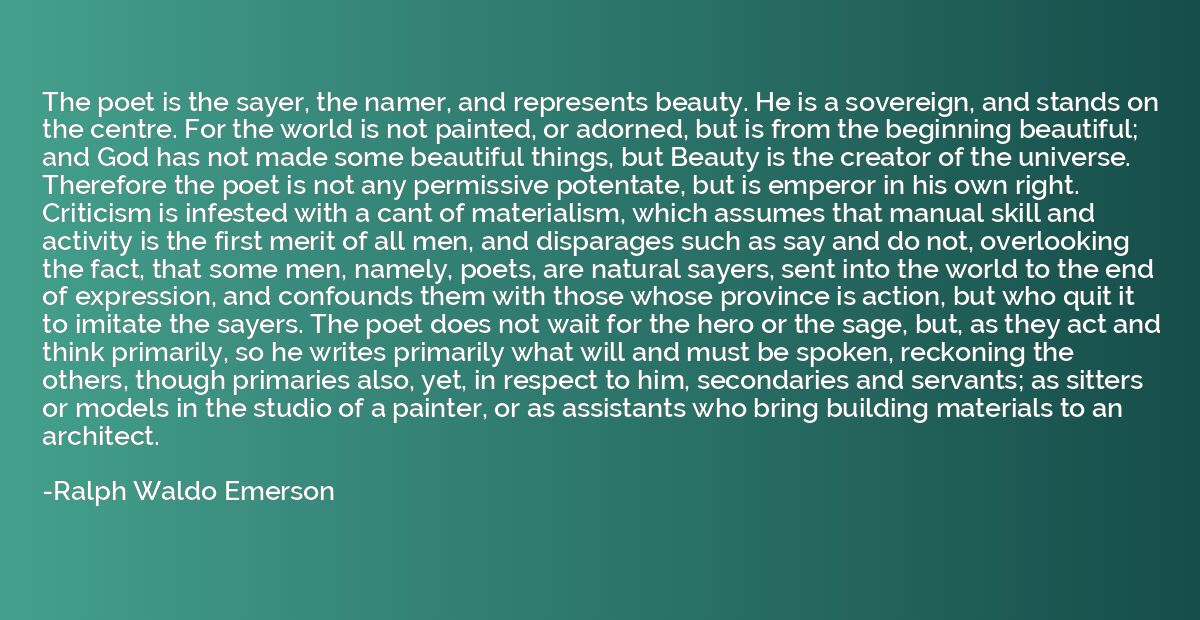
Summary
This quote explains the role and importance of the poet. It emphasizes that the poet is not simply a creative or expressive individual, but a powerful figure that represents beauty and stands at the center of the artistic world. The quote counters the notion of materialism in criticism, arguing that the poet's ability to convey thoughts and ideas through words is just as valuable as manual skills and actions. The poet does not rely on others, such as heroes or sages, but is self-sufficient in creating meaningful and necessary expressions. The comparison to painters and architects highlights the poet's ability to shape and bring to life the beauty inherent in the universe.






